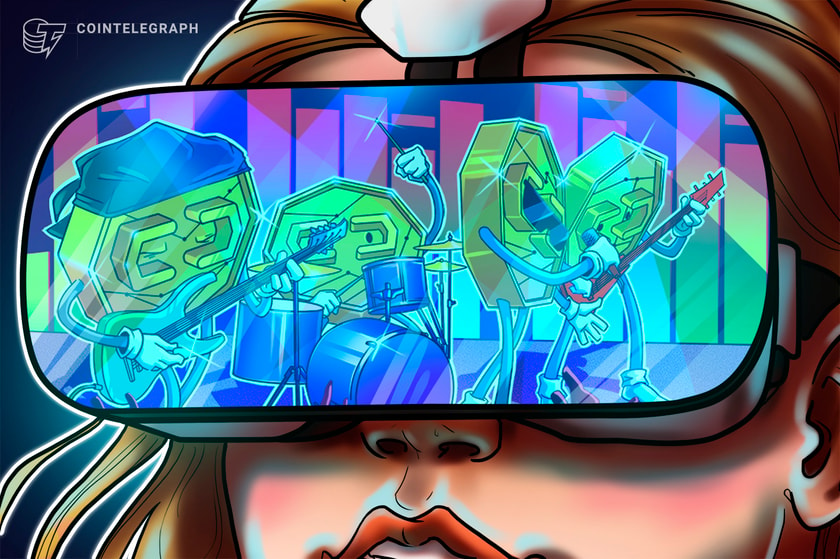AI music sending traditional industry into ‘panic’, says new AI music platform CEO

Can Ansay the founder of AI streaming and marketplace platform Musixy.ai, says AI-generated music is revolutionary and brings efficiency and lowers costs to productions.
Artificial intelligence (AI) has been making waves in various industries across the globe. However, the conflict between its usefulness and its ability to infringe on intellectual property (IP) has seen a particular struggle in the creative industries.
Major players in the music industry from artists and record labels to institutions like the Grammys and YouTube have all had to factor in AI in some form.
In the midst of traditional spaces in the music industry dealing with technology, new platforms are popping up that are embracing the technology from the start. Musixy.ai launched on Sept. 14 to serve as a streaming platform, label and marketplace for music exclusively generated by AI.
Cointelegraph spoke with Can Ansay, the CEO and founder of Musixy.ai, to better understand how giving AI-generated music its own space could shape the future music industry.
Musixy.ai said that it aims to become the “Spotify for AI hit songs,” particularly those that have been banned from other platforms. Over the last year, Spotify and other major streaming platforms have become more vigilant after Universal Music Group sent out an email asking them to step up their policing of copyrighted AI tracks.
Ansay said “the establishment” or major labels are in panic mode again, “as it was back then with Napster, because they fear revenue losses due to a new disruptive technology.”
“Unlike back then, the AI revolution is not only perfectly legal, but even threatens the existence of record companies; music is not only produced much more efficiently but also cheaper.”
He said AI presents “talented producers” with the ability to produce and monetize a hit song with any famous voice in any language. Musixy.ai particularly emphasizes the creation of new and covered hit songs with AI-generated vocals of well-known artists.
Related: AI-generated music challenges “efficiency” and “cost” of traditional labels, music exec.
Musixy.ai also works with Ghostwriter, who produced a viral song with AI-generated vocal tracks of artists Drake and the Weeknd called “Heart on My Sleeves.”
The song initially was said to be eligible for a Grammy, though the sentiment was later clarified by the Grammy CEO highlighting that it was taken down from commercial streaming platforms and didn’t receive permission from the artist or label to use the vocal likeness and therefore doesn’t qualify for nomination.
Ansay said if Musixy.ai is recognized as a streaming platform by the Recording Academy:
“For the first time these amazing AI-assisted songs could rightfully win the Grammy recognition they deserve, produced with the help of AI.”
“This is especially true for those songs that unofficially use the vocals of famous singers with the help of AI that were arbitrarily banned from all other recognized streaming platforms,” he continued.
Ansay argues that from a legal perspective, vocal likeness is not “protectable,” as it would violate professional ethics and make it difficult for singers to work having a voice similar to another more famous voice.
Instead he suggests that AI vocal tracks should be marked as “unofficial” to avoid confusion.
Recently Google and Universal Music Group were reportedly in negotiations over a tool that would allow for AI tracks to be created using artists’ likenesses in a legal way.
When asked if AI-generated music be “competing” on the same level as non-AI-generated music in terms of awards and recognition or have its own playing field – he said both directions could be viable.
“For that to happen, one must legitimately, legally, and arguably under the rules of the Grammys, distinguish what tasks AI is used for in music production and to what degree.”
Otherwise, he believes a new category should be created such as “AI Song of the Year” or something similar. “Because according to the Grammys’ mission statement on their website,” he argued, “they also want to recognize excellence in ‘science.'”
Magazine: Tokenizing music royalties as NFTs could help the next Taylor Swift

